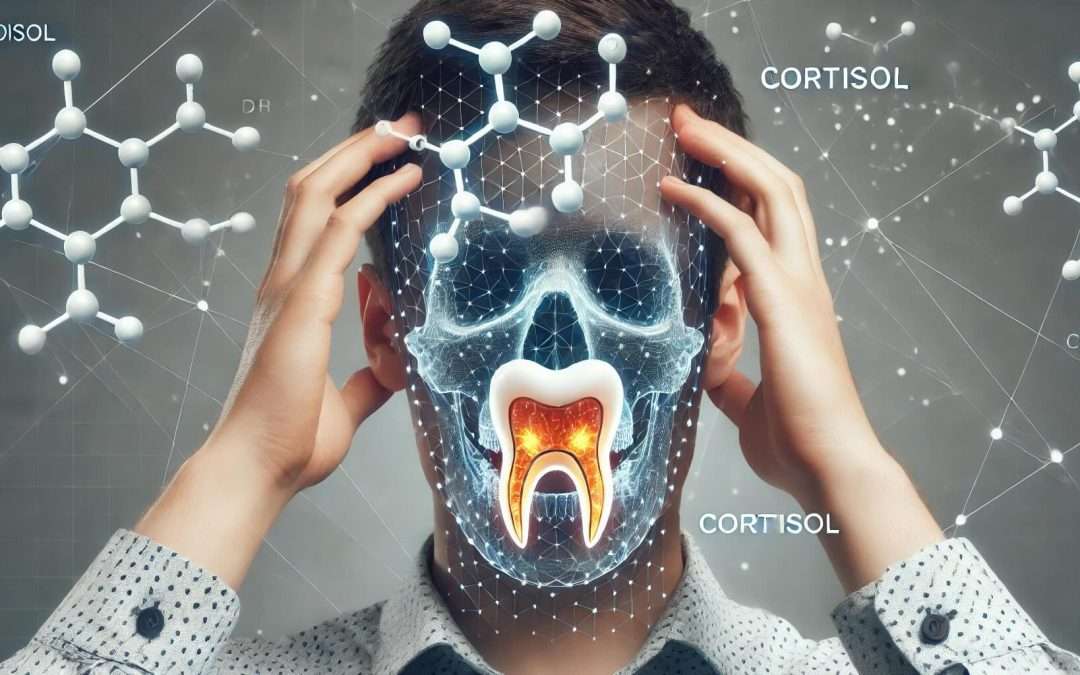Introduction
Stress is an inevitable part of modern life, affecting various aspects of our health. While many are aware of the impact of stress on mental well-being and cardiovascular health, its effects on oral health are often overlooked. Elevated cortisol levels, a hormone produced in response to stress, can significantly increase the risk of oral health issues. In this blog post, we’ll explore how high cortisol levels in saliva influence your dental health and what you can do to mitigate these effects.
Understanding Cortisol and Its Role in the Body
Cortisol is a steroid hormone released by the adrenal glands in response to stress. It plays a crucial role in various bodily functions, including metabolism regulation, immune response, and blood sugar maintenance. However, chronic stress leads to prolonged cortisol secretion, which can have detrimental effects on overall health, including oral health.
How Elevated Cortisol Levels Affect Oral Health
Gum Disease (Periodontitis): High cortisol levels weaken the immune system, making the gums more susceptible to infections. This increases the risk of gum inflammation, bleeding, and ultimately, periodontitis—a severe form of gum disease that can lead to tooth loss.
Tooth Decay: Stress can lead to neglect of oral hygiene practices. Elevated cortisol levels may also reduce saliva production, leading to dry mouth (xerostomia). Saliva is essential for neutralizing acids produced by bacteria in the mouth; reduced saliva flow accelerates tooth decay.
Bruxism (Teeth Grinding): Stress is a common trigger for bruxism, where individuals grind or clench their teeth, often unconsciously during sleep. Over time, this can cause tooth wear, fractures, and temporomandibular joint (TMJ) disorders.
Mouth Ulcers: Chronic stress can disrupt the balance of bacteria in the mouth, leading to the development of painful mouth ulcers and other lesions.
Signs Your Oral Health May Be Affected by Stress
Persistent bad breath
Swollen or bleeding gums
Increased cavities
Tooth sensitivity
Jaw pain or headaches
Noticeable tooth grinding or clenching
Strategies to Manage Stress for Better Oral Health
Maintain Good Oral Hygiene: Brush at least twice a day, floss daily, and use an antiseptic mouthwash to reduce bacterial buildup.
Regular Dental Check-ups: Visit your dentist regularly for cleanings and check-ups to catch and address issues early.
Healthy Diet: Consume a balanced diet rich in vitamins and minerals to support immune function and oral health.
Stay Hydrated: Drink plenty of water to maintain saliva flow and reduce dry mouth symptoms.
Stress-Reduction Techniques: Incorporate activities like yoga, meditation, or regular exercise to manage stress levels effectively.
Use Mouthguards: If you suffer from bruxism, consider using a nightguard to protect your teeth from grinding damage.
Conclusion
Understanding the connection between stress and oral health is crucial for maintaining a healthy smile. By recognizing the signs of stress-related oral issues and implementing effective stress-management strategies, you can protect your teeth and gums from the adverse effects of high cortisol levels. At Soothing Dental, we are committed to providing comprehensive dental care tailored to your unique needs. Schedule an appointment today to ensure your oral health remains optimal, even during stressful times.

